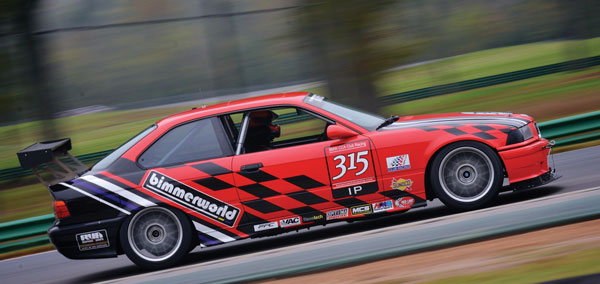Car-racing costs can't be deducted by lawyer as marketing expense, 10th Circuit rules

A solo personal injury lawyer can’t the costs of car racing as a marketing activity, a federal appeals court ruled Monday. (ABA Journal file photo courtesy of Roman Lifson)
A solo personal injury lawyer can’t count the costs of car racing as a marketing activity, a federal appeals court ruled Monday.
The 10th U.S. Circuit Court of Appeals at Denver ruled against lawyer James William Avery, who sought to deduct more than $300,000 in expenses incurred in car racing, Law360 reports.
Avery moved to Indiana from Colorado in 2003. He continued to practice law in Colorado, but he hoped to boost his practice in his new state, as well, the 10th Circuit said in its Dec. 9 order and judgment.
To market his practice, Avery began to participate in car shows in Indiana and then tried his hand at car racing. Avery’s Dodge Viper, bought for more than $100,000, had a decal for his law firm on the back, he said in his appellate brief. The webpage for his “Viper racing team” was linked to his firm’s Facebook page.
He raced in at least seven states, including Indiana and Colorado.
But the costs of car racing were not an ordinary and necessary business expense for attorneys that can be deducted, the U.S. Tax Court ruled in February 2023. The 10th Circuit upheld the conclusion.
The Tax Court had found that Avery “greatly enjoyed car racing, which he found more exciting than his previous hobby of acquiring collector cars and participating in car shows. But we find that both activities were hobbies. No deduction is allowed for personal expenses of this kind.”
Avery had argued that the Tax Court should not have considered enjoyment of his marketing activity in its ordinary-and-necessary analysis. Doing so, he argued, could lead to a situation in which expenses incurred for a work vehicle would be deemed to be personal expenses simply because a taxpayer enjoys driving the vehicle.
The 10th Circuit said it isn’t obvious that the Tax Court actually considered Avery’s enjoyment of car racing as a factor in its analysis.
“But even if we read the Tax Court’s decision as Mr. Avery does, we see no error in considering personal enjoyment as one factor among others,” the 10th Circuit said.
Avery did not immediately respond to an ABA Journal request for comment sent to an email address listed on his appellate brief. Nor did he respond to a voicemail left at a number listed on the brief.
The case is Avery v. Commissioner of Internal Revenue.



